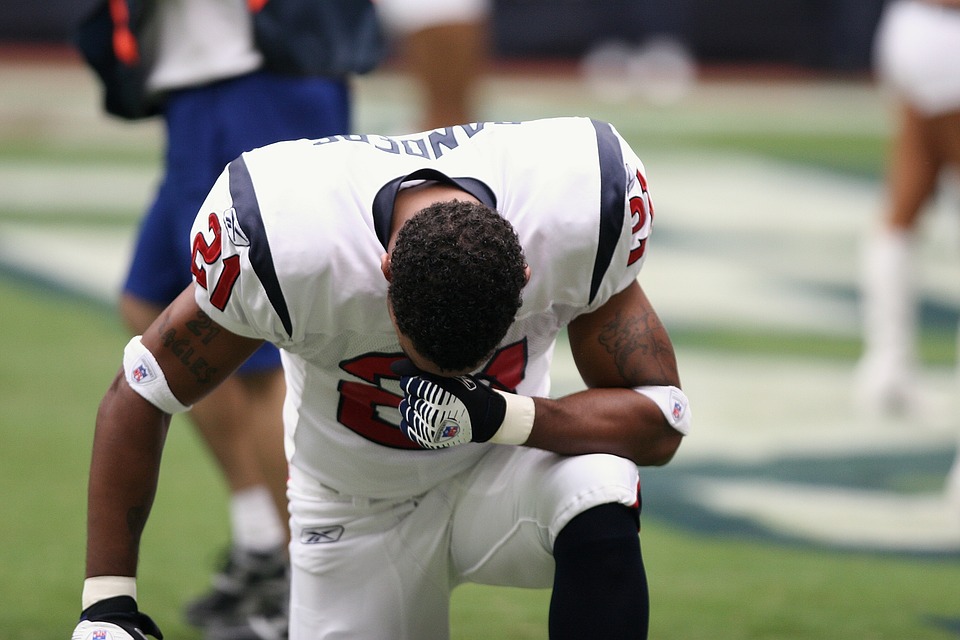Why is Kneeling during the National Anthem such a Big Deal?

by SANGJUN HORNEWER’20
OPINIONS EDITOR
Recently, the issue of whether kneeling during the national anthem is appropriate or not has become a central focus in the news due to media coverage of racial injustice and police brutality against minorities. It has sparked controversy among people everywhere in the United States because of the discrepancy between the intent of the action versus its interpretation.
In 2016, Colin Kaepernick, the quarterback for the NFL team the San Francisco 49ers, decided that he would not stand when the national anthem was played at games. His goal was to bring attention to the police brutality and racial injustice against minorities that existed – and still exists – by using his celebrity platform and media influence for what he thought was a good cause.
The First Amendment grants us the right to freedom of speech, which is one of the privileges Americans have. Kaepernick decided to use his first amendment rights to peacefully protest a countrywide social issue.
On the other hand, there are people who believe that Kaepernick’s actions disrespect America and all that it stands for. By not standing to honor the flag during the national anthem, he has received criticism for not respecting the country that has given him the opportunities he has today. Additionally, some people view this action as being disrespectful of those who gave their lives in battle for the sake of the country’s values.
So: did Kaepernick get the awareness he wanted for the social issues of racial injustice and police brutality, and why are we still talking about it a year later?
Today, we still see media representation of professional athletes kneeling during their games in light of more recent events such as the white nationalist rally in Charlottesville as well as the current polarized political climate. Also, there has been some serious consideration for how student-athletes can and should handle their beliefs.
Hearing all the recent discussion about this issue made me wonder if the controversy would filter into collegiate athletics at Lake Forest College. I am a member of the women’s soccer team, and during one of our practices, my coach, T. R. Bell, took the time to explain to us how he felt about the issue in regards to our team. He said that he would not have a problem with us expressing ourselves during the national anthem in whatever way we see fit, but that we should inform our teammates if we were to choose to take a knee. We discussed mutual respect and tolerance, which is exactly how I think this issue should be handled for collegiate student-athletes.
Having a coach who supports freedom of expression brings me back to the idea that everyone has different perspectives on controversial subjects like kneeling during the national anthem. I am sure that there are some college coaches who would not want their athletes to kneel during the national anthem, but personally, I appreciate a coach who is willing to create a safe space for everyone to express themselves.
Racial injustice and police brutality against minorities are two social issues that are by no means easy to address. Kaepernick’s kneeling during the national anthem started a nationwide conversation on the topic, in addition to the surrounding controversy. Despite the fact that people will have contrasting opinions, you can still uphold your own beliefs while respecting the beliefs of others.
Sangjun Hornewer can be reached at hornewersm@mx.lakeforest.edu
